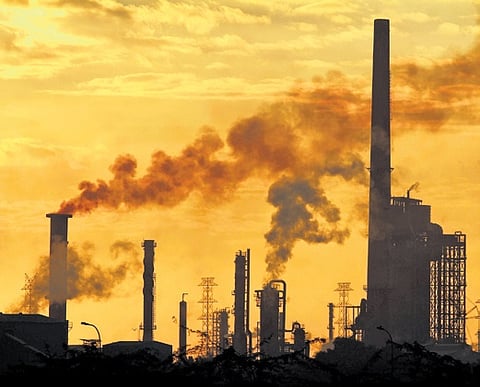

CHENNAI: Investments worth Rs 5,000 crore will be required to control air pollution in Thoothukudi, Madurai, Chennai and Tiruchy cities, according to a report by the Center for Study of Science, Technology and Policy (CSTEP). The four cities failed to meet the National Ambient Air Quality Standards for three to five consecutive years.
The report said that among the cities, except Thoothukudi, vehicular movement was the major source of particulate matter (PM) 2.5 emissions, with contributions ranging from 41% to 54%. In Thoothukudi, industries accounted for 97% of the emissions, the report stated.
The aim of the study was to develop a database of pollutant sources in the four cities, focussing on various sectors including emissions from domestic sector, commercial, industry, construction and demolition, open burning, transportation, and road dust.
In Chennai, the total emission loads of PM10, PM2.5, SO2, and NOX were estimated to be 84,602, 26,996, 75,465, and 1,12,200 tonnes/year, respectively, at the airshed level. However, within the city area, the estimated emission loads for PM10, PM2.5, SO2, and NOX were 5,487, 2,832, 859, and 17,850 tonnes/year, respectively.
In Madurai only 29% of the total SO2 emissions originated within the city. However, Thoothukudi has been a cause of concern. The study found that a major share (over 70%) of the total PM10, PM2.5, SO2, and NOX emissions originated within the city limits, owing to the presence of heavy industries.
Tiruchy was found to contribute between 6% (SO2) and 43% (NOX) of the total emissions (PM10: 23%; PM2.5: 22%). The report said that by 2030 total emissions will increase significantly – 16% in Thoothukudi and 27% in Chennai. Reduction in city-specific emissions will require electrification of private and public vehicles, increase in public transportation modal share, ban on open burning, and regular cleaning of roads.
Measures such as ensuring compliance to emission norms in thermal power plants, installing pollution control devices in all large industries, and incentivising industries to switch to clean fuel and advanced technologies should also be prioritised.
To implement these, the cities would need significant investments, and industries would need to bear the technology upgrade costs, the report added.